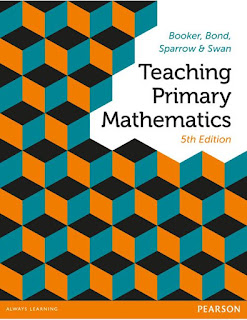Here in Australia we have access to so many fabulous mathematicians that inspire and support our current thinking about planning, teaching and assessing maths.
This week's blog comes from Paula's Place
At my school in the last four years we have had the privilege to work these people...
Michael Ymer
Andrea Hillbrick
Rob Vingerhoets
Di Siemon
and
George Booker
Here is a snapshot of each one. I would love to hear about who you have worked with in your school.
Michael Ymer
He is clear, engaging and practical. His work allows an ordered space for great maths thinking to take place.
Tips from Michael Ymer's Presentation - the set up is so important to running a great room
- Set up the activity on a table at the front of the room - this is great for sharing the Learning Intention
- Have the children declutter their tables - prepare for great work habits
- The pairs of children emulate the set up - this teaches responsibility and encourages the children to know where the equipment is for future problem solving
- Fishbowl the activity for the class at one of the tables - this is explicit teaching and encourages questions about the learning
- If there's an odd number of participants, one child will partner with the teacher BUT this "honour" is shared around the class
- When using dice you roll for your partner and vice versa
- use a slip mat (if the roll goes off the mat, the child whose turn it is can choose the number rolled
Andrea Hillbrick
Andrea is a dynamic presenter who works in many schools and brings this experience to her presentations.
Andrea worked on what planning looks like - how to use tasks to hook kids in, how to set up tasks that were part of real life and how to encourage love of learning to measure outcomes.
She has a range of books that are very practical in any classroom.
Rob Vingerhoets
Rob has made a huge impact on the way I plan and how I advise others to plan in our school.
Rob has a genuine approach in supporting teachers to be realistic about the amount of planning we do. We all over plan and then get frustrated that we haven't covered what we plan.
He promotes a six step plan to avoid doing this and in a nutshell it is like this...
Step One
Complete a Yearly Overview - in a grid record what is
happening this year for each term. Add headings for what is your school focus and brainstorm under each one.
|
|
Term One
|
Term Two
|
Term Three
|
Term Four
|
|
Inquiry Unit
|
|
|
Olympics
|
|
|
Literacy focus
|
|
|
|
|
|
Science focus
|
|
Chemistry
|
|
|
|
School events
|
Swimming
Sports Day
Begonia Festival
Walkathon
|
NAPLAN
Science Works
|
Arts Week
|
Christmas Fair
|
|
Days out
|
George Booker
|
Labour Day
George Booker
Queen's Birthday
|
|
Camp
|
|
Number &
Algebra
|
|
|
|
|
|
Measurement and
Geometry
|
|
|
|
|
|
Stats and Prob
|
|
|
|
|
Step Two
Then work out how many days
exactly we have to teach for that term.
If we have a 10 week term = 50 days
Then Rob suggests that we minus 10% for unplanned interruptions and revisions.
Step Three
If you have 31 days left then you need to prioritise your topics to cover. Forget about going Monday to Friday - be flexible about time.
ie 10
for fractions and decimals, 5 mass, 10 on four ops, revision, mapping and time.
Step Four
On a grid in weeks
allocate what you intend to do
Here is an example of brainstorming topics and a making as many real links as possible.
Step Five
The Fishbone Planing is for big units ie
ten lessons.
Six out of ten lessons should be mixed ability and kids learning from each other and us collecting ongoing
formative assessment.
We should be planning for open and closed
tasks for all students.
The last 3-4 lessons is where do
extension, reinforcement and support tasks - in ability grouping.
We should offer focus groups and
kids sign up for them if they think they need.
Di Siemon
Di has an enormous passion for the 'Big Ideas' in Mathematics. Her work on number sense has driven the Scaffolding Numeracy - Middle Years work.
The misconception research she has undertaken has been useful in our planning.
We had a small team hear her last week.
George Booker
George spent two days with us and we focused on what additive and multiplicative thinking looks like.
Through this we explored foundational concepts like subitising, trusting the count, basic number sense and how important the language in maths is.
Over the two days we used unifix, Base 10 blocks and bundling sticks to explore early maths concepts and how to model this in more complex tasks for two and three digit equations.
He is co author of this book that many Universities have as their core text.
This is the 5th edition.
We have found it beneficial for identifying misconceptions and planning for them.
If you ever get the chance to work with these people - take it!























Thank you for being a beacon of light and positivity in my life – your presence brings joy and uplifts my spirits! Rev up your engines and prepare for a gaming experience like no other with Smash Karts Unblocked!
ReplyDelete